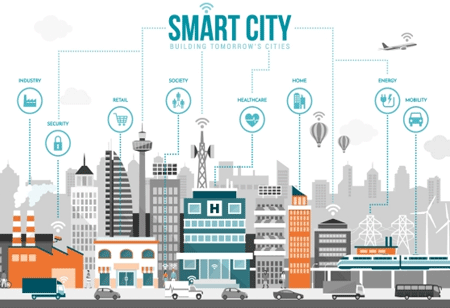THANK YOU FOR SUBSCRIBING
How is Smart Technology Revolutionizing Fleet Management?
The emergence of robust smart fleet management solutions has enabled logistics organizations to enhance driver safety and improve efficiency.

By
Apac CIOOutlook | Wednesday, September 04, 2019
Stay ahead of the industry with exclusive feature stories on the top companies, expert insights and the latest news delivered straight to your inbox. Subscribe today.
FREMONT, CA: The emergence of robust smart fleet management solutions has enabled logistics organizations to enhance driver safety and improve efficiency.
The logistics sector is evolving with the integration of emerging technologies. Artificial intelligence (AI), machine learning (ML), automation, and blockchain are some of the most successful developments of the twenty-first century which have disrupted not only business operations across various sectors but also the job marketplace.
The advancements in autonomous driving technology have spurred the fleet management to turn its gaze toward the driverless vehicle capability. The digitalization has led to the generation of vast troves of data. Several tech-savvy organizations are leveraging robust AI systems to sort through the datasets and draw analytics to boost their strategies.
The inception of smart cars is set to change the logistics landscape. The use of driverless vehicles in the streets have been legalized by several US states. It will not be long before the smart car technology spurs the commercialization of autonomous vehicles. Automotive manufacturers across the world are testing autonomous truck technology for the freight industry. The smart driving technology facilitates connectivity between the trucks in a fleet, forming a connected platoon.
Even now, several organizations in the freight sector leverage technology, including GPS and connected sensors, to monitor the drivers, thus ensuring their safety as well as discipline. Organizations are implementing robust fleet management platforms with GPS tracking capabilities to monitor their vehicles and drivers.
Freight organizations have long relied on outdated software for their back-office processes. However, the incorporation of emerging technologies has enabled small and midsize trucking and transportation firms to leverage the robust and seamless capabilities software as a service (SaaS).
Also See: Freight Audit and Payment Companies
The incorporation of the internet of things (IoT) has spurred the emergence of the machine to machine solutions. It has enabled organizations to monitor high-value assets in remote locations, as well as track their vehicles. With smart technologies, organizations can lower the total cost of ownership of their fleets by maintaining compliance with the environmental and safety regulations and following appropriate route management, fuel consumption optimization, driver performance management, and vehicle maintenance.
In the logistics sector, where the supply chain comprises multiple stakeholders such as manufacturers, transport companies, and retailers, connectivity, and data exchange can introduce new, robust capabilities. The integration of IoT boosts the efficiency, automation, reliability, and visibility of vehicle tracking solutions.
IoT facilitates quick and seamless communication for logistic companies, empowering load management, driver and vehicle tracking, scheduling, and effective routing. Also, it has led to the development of weather APIs, traffic reporting, smart parking, maintenance monitoring, driving behavior monitoring, an so on.
The automation of supply chain processes is also a primary benefit of IoT connectivity. The interconnected sensors and devices have enabled the organizations to set up an integrated process, allowing for an automatic logistics process and trip planning. Logistics organizations can move their processes into the cloud conduct operations remotely.
Successful integration of IoT technology will enable the logistics companies to gain a competitive edge over their competitors by reducing the overall costs, optimizing resource utilization, and improving performance. By gathering, sharing, and acting on real-time data, organizations can make quick and strategic decisions.
The enhancements in connectivity facilitated by smart fleet management have enabled logistics organizations to improve vehicle safety and reduce idle time. The integration of in-vehicle devices with software has led to the reduction of turnaround time and boost overall revenue. By utilizing connected sensors and predictive analytics, organizations can forecast and track traffic jams, routes, position, and so on.
Check out: Top Fleet Management Technology companies in APAC
The data gathered from the multitude of sensors enable the fleet management companies to achieve practical insights regarding driver behavior, adherence to laws, vehicle speeding, idling, and so on. It not only helps in enhancing performance but also to conduct remote diagnostics.
Smart fleet management has empowered fleet management firms to reduce traffic fatalities, save fuel, and enhance efficiency. By promoting transparency and visibility in fleet movement, fuel management, vehicle maintenance, diagnostics, driver management, and monitoring, the solutions have bolstered vehicle and driver safety.
Also See: Top Photonics Solution Companies





